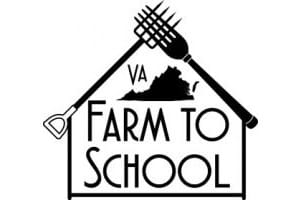
More than $10 million has been awarded to 123 projects across the country by the U.S. Department of Agriculture (USDA).
For the first time, according to a press release, the USDA is also awarding 44 states and the District of Columbia with $60 million in non-competitive grants to strengthen and sustain Farm to School programs across the United States.
More than 3 million children in more than 5,000 schools will benefit from the USDA’s 2022 competitive grants. “Further, USDA acknowledges that many people have been historically underserved and marginalized through unfair food systems. The projects selected by the department reflect its commitment to transforming food systems to be more equitable through Farm to School,” the press release stated.
Approximately 62 percent of students served by these projects are eligible for free and reduced-priced school meals. Forty percent of the projects will serve rural areas or economically disadvantaged areas. Nearly 30 percent of organizations serving communities with these projects are led by minorities.
Through Farm to School, the USDA increases the amount of locally-produced foods served in child nutrition programs and also educates children about how food is harvested and prepared.
“The expansion of Farm to School is more important than ever for our kids,” Agriculture Secretary Tom Vilsack said in the press release. “When schools and local producers work together, children benefit from higher-quality foods on their plates and program operators have stable sources for the products they need.” According to Vilsack, farm to school provides an investment in the next generation and is one of many ways the USDA works to advance nutrition security.
Since 2013, when Farm to School began, the USDA has awarded nearly $75 million in Farm to School Grants, and funded more than 1,000 projects in all 50 states, the District of Columbia, U.S. Virgin Islands, Guam and Puerto Rico. Projects have reached more than 25 million students in nearly 60,000 schools.
Last month, the USDA announced $60 million non-competitive grants for states to better assist program operators in purchasing more local foods for children’s meals between fiscal years 2023-2026. The resources will also expand agricultural education for children.
“States and school districts with strong Farm to School programs have been more resilient in the face of recent supply chain disruptions, compared to operators lacking relationships with local producers,” Stacy Dean, Deputy Under Secretary for Food, Nutrition and Consumer Services, said in the press release. “The Farm to School program deserves to be at the forefront of long-term solutions that operators can lean on to ensure nutritious, local products are always within reach.”
Feeding public school students with locally grown food supports America’s farmers and strengthens the American economy. Approximately 20 percent of all school food purchases in the 2018-2019 academic year were locally grown. The Virginia Department of Education was awarded $162,571 to implement and expand the Virginia Food for Virginia Kids initiative.
“The Virginia Food for Virginia Kids (VFVK) initiative builds the capacity and resiliency of school nutrition programs, supports student health and academic achievement, and benefits local economies and communities,” Dr. Sandy Curwood, Director of the Virginia Department of Education, Office of School Nutrition Programs, said in the press release. “Funding from the FY22 USDA Farm to School Grant will strengthen the VFVK initiative and help school meal programs transition to scratch-cooked operations, procure and integrate locally-grown and produced food into school meals, and incorporate culturally inclusive meals into cafeteria offerings.”










